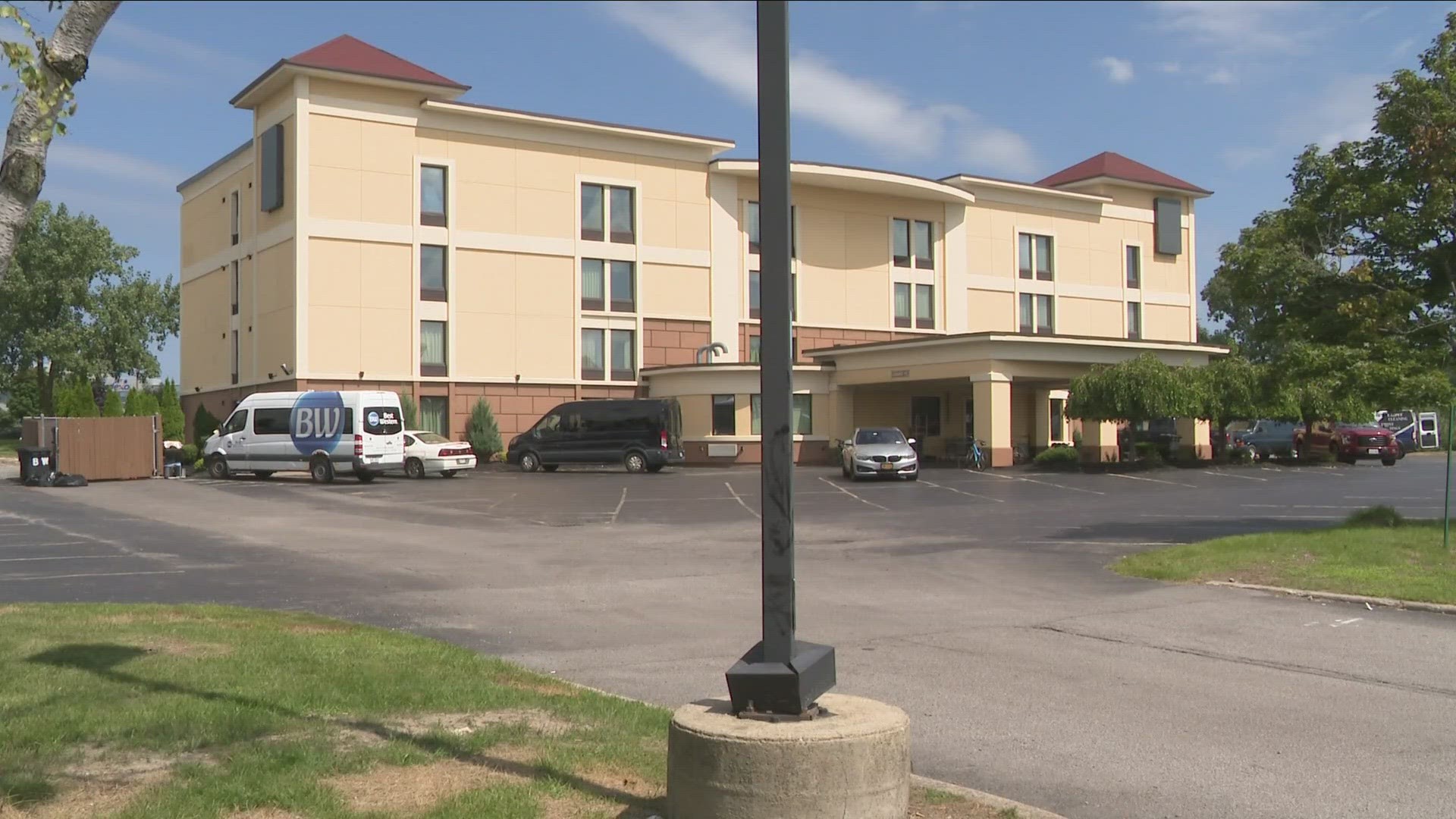CHEEKTOWAGA, N.Y. — A case involving the town of Cheektowaga and three hotels now housing migrants sent up from New York City was back in court on Friday, where the town has already secured a temporary restraining order to bar those hotels from housing any additional migrants.
The judge is taking an unusual step in order to seek the answers he wants before making any permanent decisions.
Cheektowaga officials contend that things are getting out of control at the hotels, citing a recent uptick in incidents and police calls, some of which have involved serious crimes such as rape and sexual assault.
In addition, there have been property crimes, including one case where a hotel was shuttered after a sprinkler head was broken off, causing flooding through several floors. There are also safety concerns surrounding fire hazards, after it was discovered that numerous smoke detectors at the Quality Inn on Genesee Street had been tampered with or removed, so that occupants could cook or grill in their rooms.
However, while using that to buttress its arguments, the town insists this is not what the case is about at its core.
Plain and simple
The town says the matter regarding three properties permitted by the town to operate as hotels should be pretty simple.
"These hotels are no longer operating as hotels," said attorney Robert Zitt, who was hired by the town as outside counsel for the case.
The town argues they have instead become long-term shelters, and it wants the judge to order the hotels to submit site plans and apply for a special use permit before being allowed to continue to operate as such.
"Have these hotel owners put in the requisite applications or stop using the property in an unlawful manner," said Zitt, in explaining the towns request for relief to the judge in court on Friday.
"They're not going to grant these applications," retorted Todd Soloway, the New York City-based attorney representing the hotel owners. "Does anyone believe they're going to say, 'Oh, great ... here's your permit?' "
Soloway also inferred, without evidence, that there was some sort of insidious, xenophobic endgame afoot on the part of Cheektowaga officials.
"They don't want these people (migrants) enrolling in their schools. That's what's happening here . This is a back door, this whole thing about this application. ... They want these people out."
"That's not the case," Zitt insisted. "The town is looking to enforce its code because it it doesn't no one else will."
NYS Supreme Court Justice Emilio Colaiacovo also sparred with Soloway over his classification of the migrants as "temporary" guests.
"If they are temporary, why are these children being enrolled in school?" asked the judge.
When Soloway explained that he understood that the goal was to have people stay in order to have their asylum applications heard, while acknowledging the process is lengthy (on average four years), the judge replied, "Well, there's nothing temporary about that."
Finally, as Soloway insisted, "They're not staying in these hotels forever," the judge asked, "then, when is checkout time for these people?"... to which Soloway conceded, "checkout time is indefinite right now."
"So, there's nothing temporary about that either," said the judge.
Not so plain and simple
The judge indicated that ordinarily it might be simple to decide if a business was in compliance with town code, and grant the towns request for relief if it was not.
Except for for one thing which makes the matter complicated. Especially if he grants the town the relief it seeks.
Posing the question to Zitt, Colaiacovo asked, "Let's say, for example and hypothetically speaking, the defendants submit a permit application and you don;t grant it? Where are these people going?"
Zitt said the town was in no position to answer that and Soloway, who represents the hotel owners, could not say definitively either.
With neither the attorney for the town nor the hotels being able to answer that, Colaiacovo determined the only ones who could would be DocGo, the firm contracted by New York City to transport migrants and arrange for their housing.
Thus, he issued an order impleading DocGo to become a party to the case, and directing their representatives to appear in court ready to answer questions next Tuesday.

